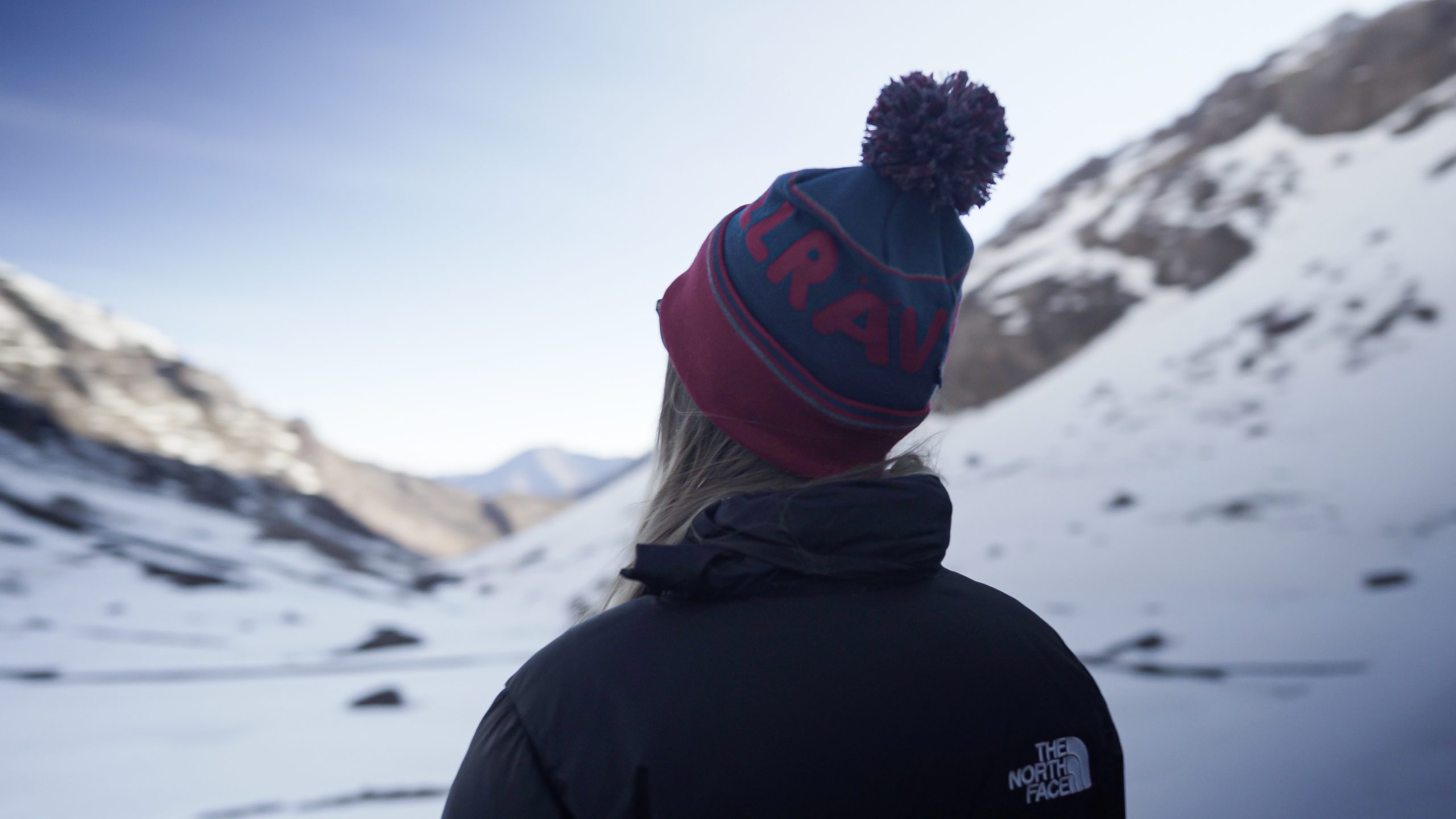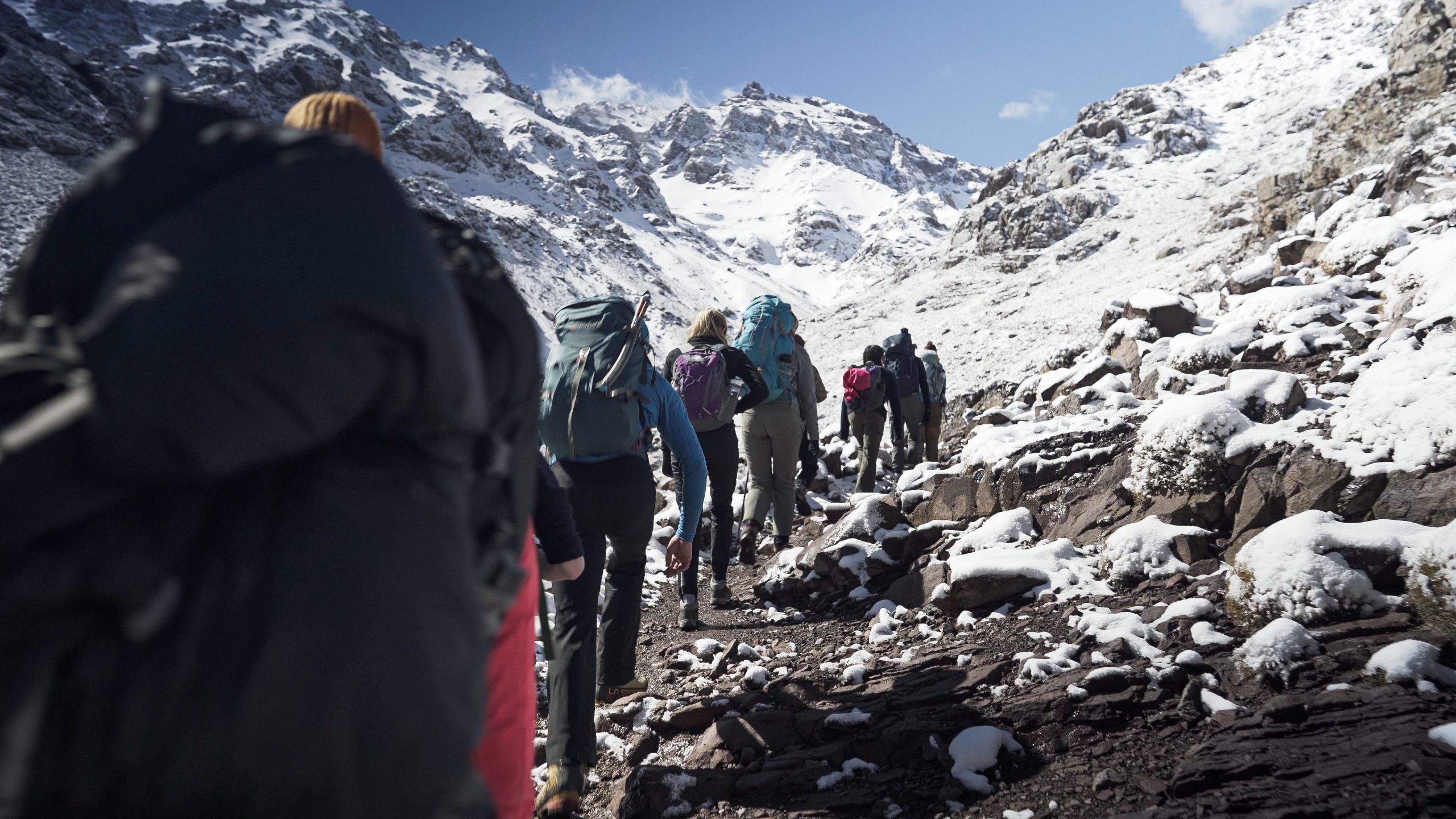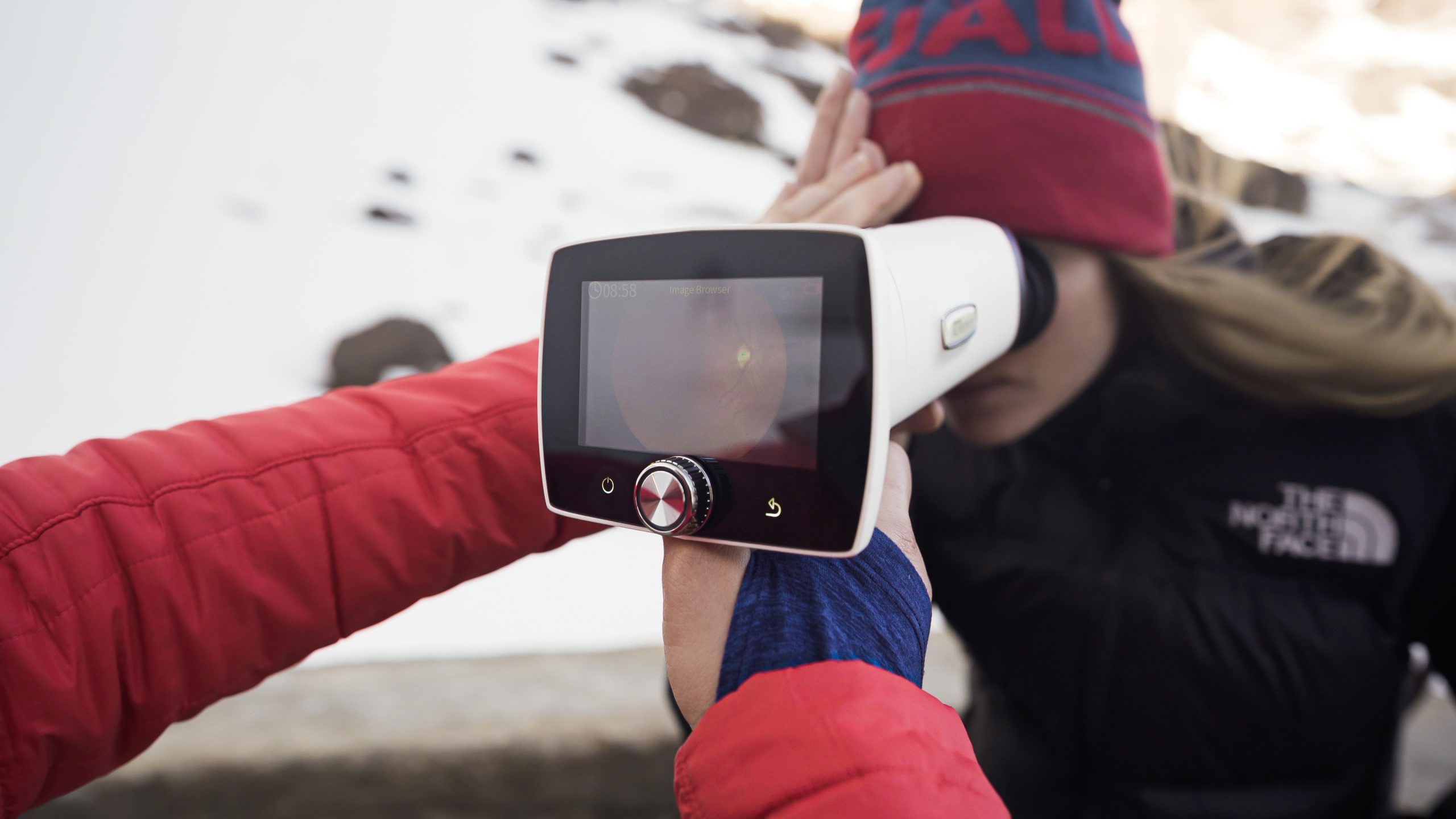
In March 2022, a group of medical students undertook a research expedition to the Atlas Mountains in Morocco. Georgia Leggett, reflects on her experience summiting Mount Toubkal and the challenges that come with conducting research in such a remote environment.
Before starting at Imperial, I was fortunate enough to co-lead a couple of charity projects in Brazil, where my varied experiences sparked my interest in health care provision in remote and extreme environments. Applying for the Remote Medicine BSc was an obvious choice, as it provided the opportunity to integrate my love of travel and adventure into my medical degree, and in March 2022, seven other students and I had the opportunity to carry out a research expedition to the Atlas Mountains in Morocco as part of our BSc projects.
High altitude expeditions are physically demanding, requiring intense activity and leading to a myriad of physiological changes, in addition to intense mental stressors. Our research aimed to explore each of these areas to deepen our understanding of their impact. My own project aimed to explore methods for monitoring individual wellbeing whilst on an expedition in a remote environment. Adventure tourism is growing rapidly, with millions of people undertaking expeditions each year, yet there’s a lack of research related to the psychological impact on individuals who are relatively new to the mountains. These individuals are arguably the most vulnerable to stress; at risk of under-estimating the challenges ahead, receiving differing levels of training and lacking access to professional support. Stress can impact upon cognitive, physiological, and physical capacity and could ultimately determine outcomes in high stake emergencies in these dangerous environments. It’s important for us to monitor expedition goers to optimise conditions, provide support where necessary and inform planning of future trips.
In the month before departure, our team ventured to the Brecon Beacons for a 2-day camping trip to try out our equipment, as well as field test our data collection methodology (the howling winds and sub-zero temperatures overnight provided us with a taster of what was to come!). Just a few weeks later, after refining our protocols, acquiring the final pieces of kit and performing pre-expedition baseline measurements, we flew to Marrakesh.
The beauty of the mountains
On our first night we were able to collect some baseline data and enjoy the local cuisine, before heading to the mountains the next day. Although I’d seen photos of the Atlas Mountains, nothing could have prepared me for the beauty of the scenery. Each day we were mesmerised by the waterfalls, streams and snowy peaks. The views were breath-taking (even before accounting for the lower level of oxygen!). The stark contrast with the hustle and bustle of London life, full of cars, construction work and high-rise buildings made waking up to the mountains seem unreal.
Our ascent demanded around seven hours of walking each day, with data collection taking place at breakfast, throughout the day and each evening. The route became increasingly difficult as the altitude increased and, with deep snow and wind, we needed to use ice-axes and crampons. All team members received ice axe arrest training and a few hours of practice before tackling some of the steeper aspects.

The expedition was exhausting. For most of us, this was our first time to altitude and the combination of trekking and research took its toll. Every night, as the final hours of data collection would come to an end, we were saved by the endless supply of mint tea and fantastic food (many tagines!) to prepare us for the following day. We were pretty isolated from the outside world throughout the trip. There is little mobile phone signal in the mountains and, to be honest, not much ‘down time’ to notice the lack of connection with our lives at home. Through spending everyday with each other, making jokes, telling stories, and generally helping each other out, we developed a strong sense of camaraderie and determination. When we got a few minutes to relax before heading to bed, we would chat by the fire, listening to music and cheering each other on for the next day.
Preparation and planning
Prior to the expedition, I had not appreciated quite how different this process would be compared to research within a laboratory setting. Expedition research requires a ‘portable’ lab. All equipment needed to be transported with us and everything needed preparation. There was no opportunity to change methodology with the benefit of hindsight, as acquiring additional tools was impossible. Equally, we were completely dependent on each item – there was no ‘back-up’ if a device was damaged or faulty. This also limited the speed at which the data could be collected, as generally only one device was available for each project, so simultaneous measurements were unattainable. We all became militantly-focused on preparation and planning, with a new found appreciation for project management skills!

We came to realise the sheer number of variables for which it was impossible to control; weather conditions could prevent the safe undertaking of the planned route, accommodation and food were dependent on last-minute availability and individuals coped with the challenges of the expedition in different ways. The importance of optimising what was within our control, and accepting the uncertainty of what wasn’t, became increasingly important.
Shared dormitories and escalating altitude impacted everyone’s sleep and the different cuisine played havoc with most of the group, however the data had to be collected. There was no chance of rescheduling to another day or packing up and heading home. We were committed. Despite a couple of low moments, I know I’m more resilient as a person for having persevered through the trip during those times.
I wouldn’t hesitate to undertake more expedition-related research and cannot wait to get involved in future projects. The cold hands, wet feet, and lack of sleep were completely overshadowed by the achievement I felt from summiting Mt Toubkal (4167m) and completing my project. Having been both a researcher and participant in the expedition enhanced my ability to write my project report and provided an deeper understanding of the challenges of conducting research in a remote environment at altitude.
Watch the full video of Georgia’s trip below.
Georgia Leggett is a fourth year undergraduate MBBS student.
Photography and video by Dr Andrew Darby-Smith
I graduated from St. Mary’s Hospital Medical School in 1959. At that time there was still Armed Services conscription for male doctors.
The alternative to two years in one of the Armed Services was to serve three years in Africa. I chose the latter and was sent to Eastern Uganda, with six months training there in tropical medicine and surgery. I was then posted to Soroti, where I was one of three doctors looking after a population of a half million Iteso.
The skills and experience learned in Uganda have been enormously useful, as I have spent most of my working life living and working among the indigenous people of British Columbia, well away from the social problems of Vancouver.
All medical students would benefit from having to spend time in an underdeveloped country and perhaps they might be persuaded to work there later on.
Sadly, we now see a trend for African doctors coming to spend their working lives in Canada while they are still needed in their homeland.